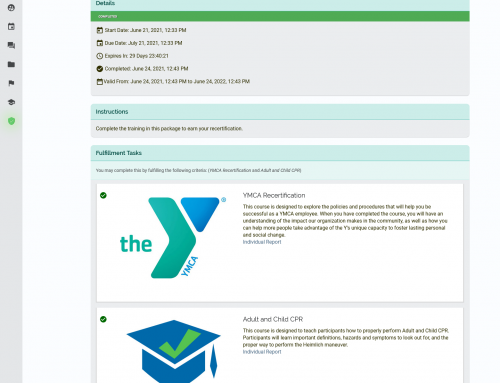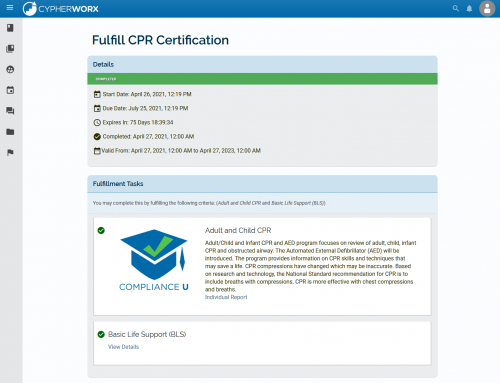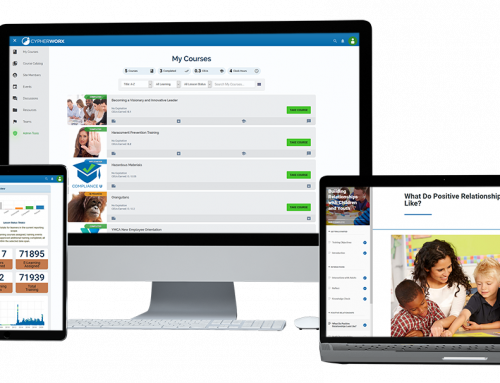The International Association for Continuing Education and Training (IACET)
In a marketplace cluttered with in-person, on-line and print-based education resources, it is vital to know what programs are worth both your time and money before making a commitment. Continuing education units, or CEUs, are awarded by many education and training providers to signify successful completion of non-credit programs and courses intended to improve the knowledge and skills of working adults. Among the most common uses of CEUs are to record refresher, transitional, or knowledge improvement accomplishments for professional workers undergoing what is called continuing professional education.
One Continuing Education Unit (CEU) is defined as ten contact hours of participation in an organized continuing education experience under responsible sponsorship, capable direction, and qualified instruction.
The primary purpose of the CEU is to provide a permanent record of the educational accomplishments of an individual who has completed one or more significant non-credit educational experiences. Awarding the CEU developed by the International Association for Continuing Education and Training (IACET) provides a quality indicator for your continuing education and training programs because it means you have been reviewed and approved for complying with internationally recognized standards. For individual learners, certifying agencies and education providers, IACET CEUs demonstrate that a program has paid attention to such elements as developing clear learning outcomes, assessing learner needs and conducting thorough evaluation to ensure continuous improvement.
Calculation of CEUs
One IACET CEU is awarded for each ten hours of instruction in a structured continuing education experience (class, seminar, retreat, practicum, self-study, etc.) that is supervised by a qualified continuing education provider.
CEUs are similar in theory to academic credits but differ in two important respects:
- CEUs are not awarded for academic study and do not represent, or provide, academic credit; and
- They may be awarded for a variety of experiences in different settings whose only common criterion is that they be measurable, supervised educational or training experiences with defined starting and ending points.
CEU Conversion
Some CEUs can be converted into academic credit hours. This is done by both higher education institutions and special examining and assessment services. Academic credit can only be granted for CEUs if (1) the subject matter and nature of the CEU experience is approved as applicable to academic credit; (2) the continuing education experience has been analyzed for content and level and, if necessary, the person holding the CEUs has been examined; and (3) a formal recommendation is made by competent academic authorities (faculty, review board, etc.) based on an agreed conversion formula. CEUs are most commonly converted via a formula that considers at least ten (10) CEUs to equal a single academic credit hour.
People Who Make a CE/T Investment
Now that we know a bit more about continuing education and CEUs, we should find out who are most likely to want to invest in these programs. People who have already acquired education at the college level are the most likely to want more. They will pay more for courses and related books or software than those who have not participated in a higher education environment or experience. Therefore the growing need for increased knowledge will fuel increased spending by both individuals and their employers on educational products and services.
The Bureau of Labor Statistics reports that households headed by people in management or professional occupations spend nearly twice as much as the average household for educational products and services. In addition, average per-household spending on education by professional- or manager-occupied households has increased over 50 percent since 1990.
The National Center for Educational Statistics reports that the same proportion of employees seek continuing education regardless of overall staff size, although employees from organizations with smaller staffs pay more personal funds towards their continuing education experiences.
Ensuring a Strong Return on Your Investment
The International Association for Continuing Education and Training is a non-profit association dedicated to quality continuing education and training programs. IACET’s mission is to promote and enhance quality in continuing education and training through research, education, and the development and continuous improvement of IACET criteria, principles, and standards.
IACET approves education providers that meet strict continuing education guidelines originally created in 1968 and most recently updated in 2007. IACET recognition is the standard learners seek for quality when they choose a provider. The ANSI/IACET 1-2007 Standard is the core of thousands of educational programs worldwide.
IACET grew out of a National Task Force on continuing education commissioned by the U. S. Bureau of Education (now the Department of Education) in 1968. The ANSI/IACET 1-2007 Standard is based upon in-depth research on the learning process.
By researching a program’s performance and commitment to standards in addition to seeking the most relevant content for your professional needs, your investment in your own professional and personal development will yield high returns in the future.
For more information about IACET and to see a list of those that accept the IACET CEU, visit www.iacet.org.
CypherWorx, Inc. is an IACET Authorized Provider, and our educational programs provide IACET CEUs. For more information about our continuing education programs, please visit www.cypherworx.com or call 888-685-4440.






